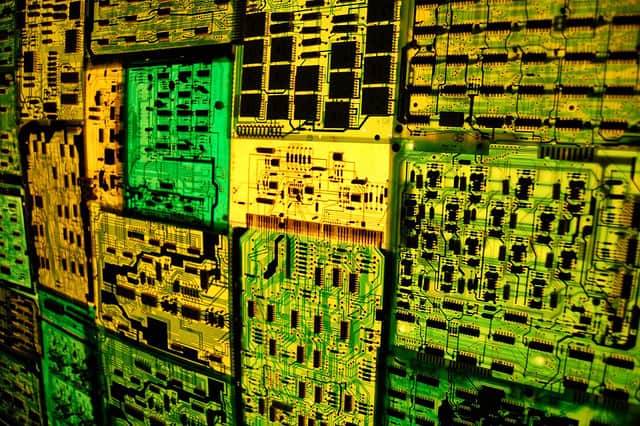It used to be only God knew you were pregnant before you did; it turns out, now Target does too. Using software to track a woman’s purchases and buying habits, Target can guess whether she is pregnant, and (scarier still) estimate her due date. Google can predict when and where the winter flu will hit — down to the state and local level — all based on web searches about health. Amazon recommends books you will like, while Walmart records the purchases you make — along with one million other purchases tracked every hour. Keystrokes are logged, vital signs recorded, and even individual seeds are catalogued and plotted in fields to yield the best crops. Government, health care, industry, and retail have spent billions of dollars building facilities to store all this data. An alphabet soup of greek prefixes — petabytes, exabytes, and zetabytes — gives name to the new orders of magnitude of information being recorded and analyzed. Ladies and gentlemen: welcome to the new world of Big Data.
* * *
This might turn out to be a good thing for the indecisive among us. You see, I’ve never really made right decisions. By that I mean, deciding rightly, actually choosing the right thing for the right reasons. Mixed motives, unclear motives, made-up motives… these I do all the time. But real clarity in the Important Decisions of Life — the ones about what to do and who to be — well, I don’t think I’ve ever really had that.
When I talk to people my age, I hear a lot of them asking, “after grad school…after volunteering…what am I going to do with my life?” For all our hard-fought freedom, it is like we want someone to research all the possible outcomes and tell us the one path to choose — no mistakes, no take-backs, allowed. What if Big Data could provide us with enough clarity and certainty that we don’t mess up the Important Decisions in Life?
* * *
Advocates say the future of Big Data is to simplify our life by allowing for fully automated decision making. Your doctor will know exactly what drugs to prescribe; online dating networks will match you for compatibility (even when you try to fib on your profile). Already, home mortgages and securities trading are routinely decided entirely by computers. Big Data, they say, can even predict problems before they occur: the copy-machine repairman will be contacted before the machine even breaks, and mechanical failures on passenger jets will be a thing of the dreaded past. It all sounds pretty good, right?
Yet not all this power is used for good. Online retailers adjust prices based on your zip code. Casinos will send down-on-their-luck gamblers free credits or a drink ticket just before they are statistically most likely to leave the slot machine after a series of losses. In another kind of wickedness, radio stations will play Celine Dion [good grief] because with her songs you are more likely to zone out and not change the channel even if you really want to.
* * *
One wonders: instead of making people impulse buy or keep on gambling, could Big Data make it easier for people to be good? Big Data is being used to train better doctors and bankers to make safer and more reliable products; is it possible, then, to use it to form better priests, nuns, brothers, lay ministers, or better Christians? In other words, could Big Data make us holy?
What if a program could help you know where to commit? Imagine if there were software that could help you take a look at the whole picture: job options, marriage prospects, school ratings, supermarket hours, and then tell you what kind of life to live. What if it let you know just before you were about to leave your spouse? Would it make it any harder not to leave the soaking dishes in the sink, step over the pile of clothes in the corner, and just walk out the door? Wouldn’t it be nice to know if you were about to fail in the same old way, fall back into the usual sin, tumble again into an old addiction?
On the BBC’s new Sherlock, Dr. Watson, amazed at Holmes’s insight asks, “How did you know?” to which Sherlock replies “I didn’t know… I noticed.” Is life really so mysterious or are we just blind to noticing the patterns? Is life a tangle of knots on this side that is seen as a beautiful tapestry only when we cross to the other side? As Sherlock shows, powers of deduction are first and foremost about simply knowing where to look. Could we be the spiritual equivalent of Sherlock Holmes if we just knew where to look, what patterns to identify?
If a machine could decode the pattern and tell you what to do, would life — in matters of vocation and love and commitment — be any easier? The truth is, whether it is a computer printout or God directly communicating His will, we still have to live out our commitments and make the life we choose our own. After all is said and done, choosing is easy; it is the living it out that is hard.
Instead of making it feel like we have more control over our lives, Big Data may actually make it feel as if we have less. When we don’t make our own decisions, we shirk responsibility for our choices. We end up being less than free, less than mature adults. And in a fatal twist of irony, we may end up less committed to the “perfect decision” after all. We tend to be more committed to decisions when we have a part in deciding. If a decision is forced from outside, most of us will give up far easier, spend our time second-guessing the decision process, or completing it poorly. Once the deciding is given up, then it is a lot easier to give up on the living it out as well. Think of your own life: how readily do you comply with a boss who tells you to do something without questioning? a superior or teacher who commands your respect? a spouse who tells you what to do every single day? In time, resentment builds and breeds contempt for the one who makes the decision.
The only way to escape this mounting resistance is ultimately to reclaim our capacity to (like Sherlock) be attentive. To sift through our own desires, and find where God may be calling us to greater life and love. In short, it is more about committing to a relationship than it is about committing to the perfect decision. While calculated pros and cons, finances, and risk-assessment may have some role to play in life, it is hard to overestimate the importance of relationship in the final outcome. Most of us choose our babysitters, piano teachers, and dentist not because of their skill or cost, but on whether they are capable of human(e) interaction with us (and our loved ones). The college you attend, the parish you join, and the spouse you marry are ultimately rooted in the quality and compatibility of relationships you make there. Similarly, faith is never a cold, scientific intellectual choice, but the result of relationships formed with other believers. Do I find God here? Does this lead me to greater life and love, in spite of the difficulties that anything worth doing entails? It frustrates me to know that no computer algorithm can answer these questions better than I can. But it also consoles me to know that in spite of all our technological advancements…I can still trust my instincts, experiences, and deepest relationships.
* * *
In observatories and laboratories, Big Data can map the stars and analyze the atom. Too often the cool, clinical science of Big Data removes the relationship and seeks to reduce us to numerical quantifiables. I have yet to see numbers fully capture the complexities of human longing, loving, or living. Yet we hear in Psalm 147:4, “God numbers the stars and calls them each by name.” When we lead with a relationship of love, where the parties are not numbered but known and named, the important choices in life become clearer. Not perfectly clear or scientifically verifiable, but trustworthy all the same.
Figuring out the Important Decisions in life is not an easy task, and it is not one of statistical probability. In the end, life is not a string of unimpeachable right decisions, but about being in right relations with people: God, others, ourselves. And that means — sorry Amazon and Target — we don’t get to sit on the sidelines and wait for Big Data to tee up the perfect decisions for us.




